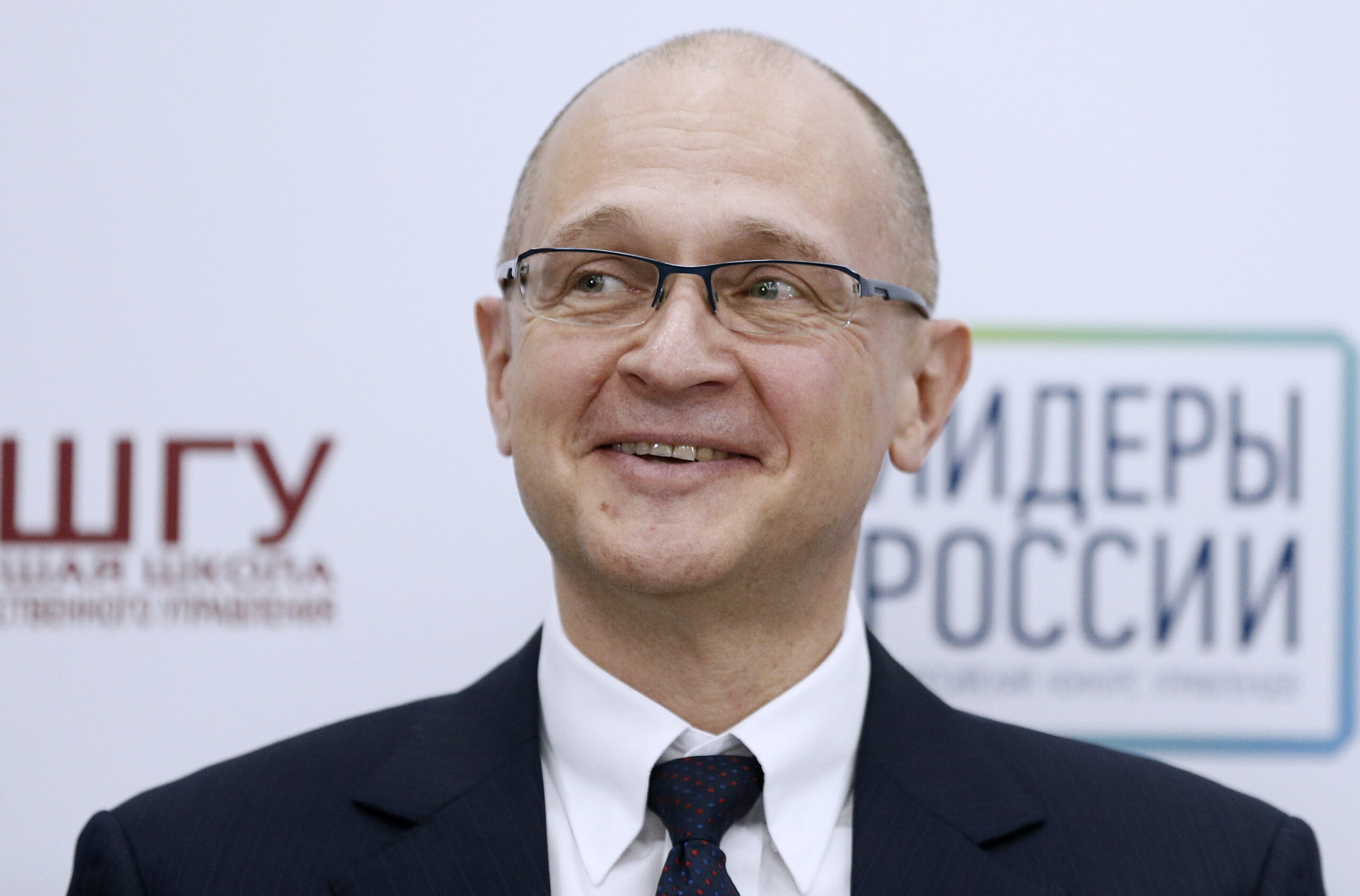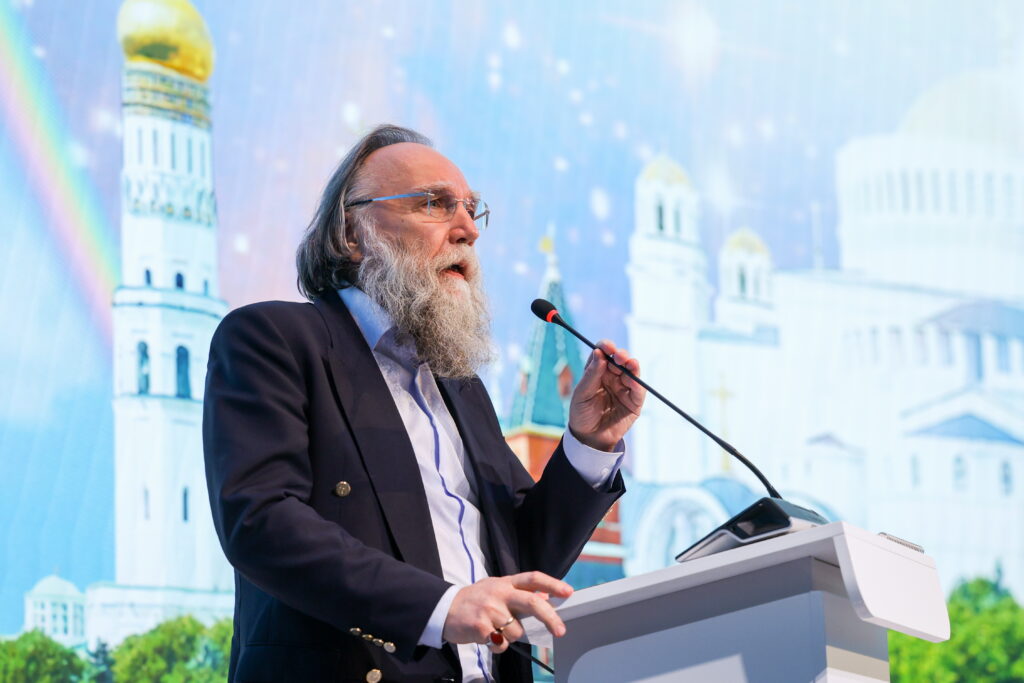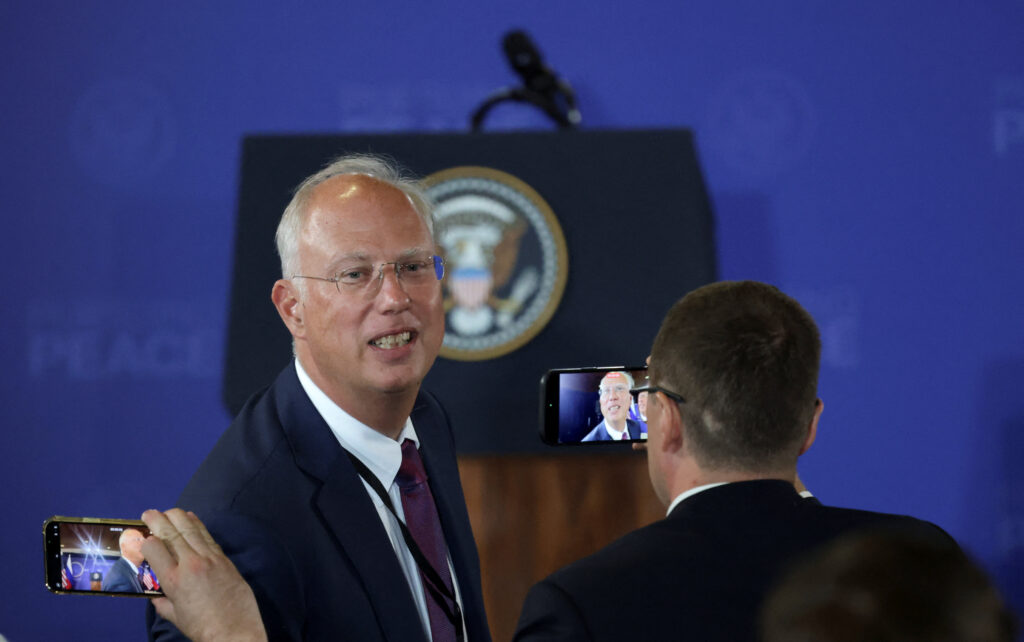The Kremlin has launched a new competition and training program for «social architects», as the Kremlin’s political bloc likes to call «political technologists” — Russian term for spin doctors and political consultants. This move is a very honest manifestation of Sergey Kiriyenko’s approach to managing social processes. Unlike spin doctors and political consultants, «social architects» are supposed to serve «social projects», such as Internet voting on urban renovation projects or the rehabilitation of war veterans. Kiriyenko and his subordinates see society not as a subject, or at least one of the subjects of state life, but as an object, material — clay of sorts in the skillful hands of «architects».
The zeroing out of politics
Sergey Kiriyenko was the one to launch the «Social Architects» competition and to announce its manifesto. «Today there is a demand not only for political technologies, but also for social technologies. The demand is not just for expertise, not just for a scientific explanation of what is happening, but for changing life for the better,» said the head of the Kremlin’s political bloc. Kiriyenko did not claim that some radically new profession had come into being: «political technologists» who run election campaigns will have to upgrade their qualifications to become «social architects». Firdus Aliyev, managing director for interaction with the expert community at the Kremlin-affiliated Expert Institute for Social Research, explained that political technologists were needed to organize election campaigns «at the onset of Russian democracy», but now «people live their everyday lives» and «social activity is not limited to elections». Referring to the autumn regional elections, Aliyev said that there were no lively «political actions» in the campaigns and that their participants focused mainly on «social issues». Yevgeny Minchenko, one of Russia’s political technology gurus, admitted that he and his team had not received orders for gubernatorial elections for a long time and were busy with other work. Alexander Sokolov, governor of the Kirov region and a former employee of the political bloc of the presidential administration said that regional authorities need projects to «reset» public opinion, which means that they will also need «social architects».
Rarely have statements by Kiriyenko and people close to the Kremlin’s political bloc been so frank and cynical. During the 25 years of Vladimir Putin’s rule, the legal-political system in Russia has been transformed into a mechanism completely controlled by the Kremlin. It reached the peak of its controllability under Kiriyenko, when the government perfected the mechanisms of corporate mobilization in elections and introduced multi-day voting to make this mobilization easier to control. For several years now, the system of electronic voting has been tested in Russia’s regions, mainly in Moscow, giving the authorities the ability to present virtually any official election result to the public. The «old» systemic political parties are pro-Kremlin on key issues and have a long history of negative selection, excluding from their ranks bright politicians who could become an alternative to the ageing leadership. The «New People» party, created in 2020 with the knowledge and partial support of the political bloc of the presidential administration, has never produced these bright «new people» its name had promised. Campaigns themselves have also become much smaller in Russia since the abolition of mayoral elections in the vast majority of cities (by 2016, only nine regional centers had retained direct elections; today there are four regional centers that hold them). In such circumstances, the Kremlin and the ruling party do not need a large number of strong «political technologists» or spin doctors who would work with the image of candidates, devise colorful campaigns and interact with party supporters. To maintain the electoral ritual, the presidential administration and regional authorities only need a small group of specialists to mobilize society and write low-brow propaganda. Systemic parties that do not seriously compete for power do not need large numbers of political consultants either.
The Kremlin cannot completely abandon interaction with society — any system runs the risk of collapse as a result of hypothetical popular unrest. Kiriyenko and his team have long tried to create pseudo-political events for such interaction: personnel contests, plebiscites on the improvement of territories, and numerous youth forums.
«Social architects» can be employed to service such events, replacing politics with «social activism» (the same local competitions or internet voting on improvements, organizing clean-up days or litter picking). They will also try to solve problems that affect public opinion here and now. Such a problem might be the rehabilitation of war veterans or the easing of tensions in a social conflict in a particular region or locality. The effectiveness of such «interaction between authorities and society» is highly questionable, but this «pseudo-dialogue» can always be dressed up in nice reports for the big bosses. Even the competition itself looks like a nice report: the organizers are already reporting record registration numbers (by 4 February, five thousand people had already registered to become «social architects»).
«Social architecture» spares the presidential administration’s political bloc another headache — creating a «vision of the future» for society. The organizers make no bones about the fact that architects «solve real public problems» and that their projects are designed for «specific» problems and cater to specific target audiences. Put simply, they work with the present rather than the future, with tactics rather than strategy. The desire to move away from the image of the future is understandable — its appearance automatically brings society back to the possibility of reviving real politics. The authorities’ image of the future can be countered by an alternative image developed either by the opposition or by one of the elite groups claiming power — and it is not certain who will win in this battle of images. That is why the system replaces this integral image with a kaleidoscope of projects meant for different social groups.
At the same time, the disastrously low number of competitive campaigns has meant that the profession of political consultant has degenerated. The campaign for the 2023 election of the head of Khakassia is a case in point. The Kremlin worked hard to oust the head of the region, the communist Valentin Konovalov, who was elected in the wave of protests in 2018. By 2023, residents and elites had grown tired of the governor, but they still preferred the local Konovalov to the «Varangian» proposed by the presidential administration, the «United Russia» member Sergey Sokol. It should be noted that the Kremlin’s top political consultant worked for Sokol, while the Communist was backed by mediocre cadres who were never considered gurus. The switch to «social projects» will further deprive the pro-government technologists of their skills, which is fraught with negative consequences in the event of a serious political crisis. But the political bloc seems to care little about this vague «tomorrow».
Builders of the City of the Sun
By redirecting political consultants towards social work, the Kremlin is seeking to solve several other problems at once. First, it provides additional income — and gigs — for technologists who are close to officials. With fewer elections in place, their income is also diminished: clients (e.g. regional administrations) do not want to pay too much and are increasingly satisfied with the non-professional services of officials who monitor politics instead of hiring a professional. Secondly, the imitative provides income to specialists who are not close to the presidential administration and who are increasingly unemployed. Such technologists can (and do) go to a problematic region and work for the local opposition group — a strong branch of the CPRF or a pool of candidates from an influential business group that disagrees with the governor’s policies. This creates problems for the regional authorities and the Kremlin, since the opinion of a political group that did well in the elections has to be taken into account. In the event of spontaneous social protests, such people can help organize them — for example, a technologist who lives in an area where a patch of forest or a park is about to be destroyed and built over with housing political consultants can help local residents organize the right kind of protest actions to put more pressure on the authorities to reverse an unpopular decision. The Kremlin recognizes that «hundreds» of unemployed technologists are essentially loose cannons capable of «influencing public consciousness and public actions». The Kremlin can buy their loyalty with contracts and commissions for «social projects». In addition, their «social work» and the money they will be paid for it will allow the presidential administration to have an ambush regiment and a pool of political consultants in case it still needs election specialists.
The «Social Architects» competition and the frankness, bordering on cynicism, of its organizers show us how the political bloc of the presidential administration understands the social structure and the interaction between society and the authorities. Kiriyenko is fascinated by the ideas of methodologists, especially Georgy Shchedrovitsky. He worked actively with representatives of the movement, first and foremost with Georgy Shchedrovitsky’s son Peter and Yefim Ostrovsky, both in the 1990s and during his tenure as presidential envoy to the Volga region and head of ROSATOM. Kiriyenko’s political bloc still uses the methodological techniques that he learned from the methodologists, such as organizational and action games (in which situations are played out to solve a particular problem). For example, in preparation for one of the meetings of the State Council in 2019 (the political bloc was in charge of this structure at the time), governors played a game in which they had to pave a street. During training sessions at the Kremlin School for Governors, participants «threw themselves under a tank» and «jumped off a cliff».
The name «social architects» perfectly encapsulates the methodologists’ view of how society is built and how it operates. They believe that society is passive, that it can be programmed, designed and managed (for the sake of a noble purpose, it is assumed). This should be done by the elite of the methodologists. In such a perception, society is deprived of its agency and subjectivity, it is but a passive object of manipulation, mere clay in the methodologists’ crafty hands. In such a world view, politics simply does not and cannot exist — citizens should be governed by «experts», «technocrats», «methodologists», and these experts are in power and determine who is worthy to join their professional corporation. The term «social architect» aptly captures this approach. The chief architects formulate the task for lower-ranking experts, and these experts build standard building blocks or structures — be it competitions for landscaping or programs for the rehabilitation of the military with combat experience under their belts. Under such conditions, society can only be paternalistic and passive, expecting favors from the state without claiming to influence, let alone shape, the government. The organizers of the competition also promote this point of view. Such a society is allegedly incapable of advancing spontaneous initiatives, so the «architects» must come up with an agenda for it and engage it in artificial activities.
As a result of the contest, political managers from the presidential administration hope to create «an informal club of winners, whose members will be able to work in constant communication with each other, ensuring the collective promotion of common values». Again, this is hardly surprising: Sergey Kiriyenko has long been building structures according to corporate rules: participants in all sorts of competitions are indoctrinated with managerial practices and a technocratic approach, they begin to speak the same language, use the same methods and patterns. This technocratic community is oriented towards its «mentors» and Kiriyenko personally. It would be a big stretch much to compare it to a sect or a proto party, but it can be said that the head of the Kremlin’s political bloc is forming a network of influence or a network of supporters, and the «social architects» will also fit neatly into it.
Sergey Kiriyenko, as the chief architect, is methodically building his project for the management of society, which resembles the early 20th century modernist designs for social transformation. The longer he does this, the more this project akes shape crystallizes. The head of the political bloc started with the relatively harmless «young technocrats» and is now dealing with the «social architects». Kiriyenko is building a state corporation and gradually training its managers in various spheres, while at the same time purging the sphere of politics. Under ideal conditions, such a system should help the ruling elite to stay in power forever. However, this project cannot be called fully modernist — it does not present society with an image of the future but freezes it «in the eternal present» and the organizers of the competition openly declare such views. Firdus Aliyev, director of the Expert Institute for Social Research, speaks of «everyday life» in which people live and never venture beyond it. For Kremlin officials and their experts, this situation seems quite normal, even desirable.
This engineering, designed to maintain the «eternal present», the eradication of the political and the preservation of power in the same hands, may be useful both to Kiriyenko himself, as a man with ambitions for power, and to Putin or one of his possible successors. For the head of the Kremlin’s political bloc and his team, the promotion of «social architects» also brings smaller tactical gains. The «architects», who will work on regional «social» projects, will make the governors even more dependent on the political bloc. In addition, Kiriyenko’s network of influence will extend even further to social institutions that are officially subjugated to the government, as they too can be clients and commissioners of social engineering projects.










